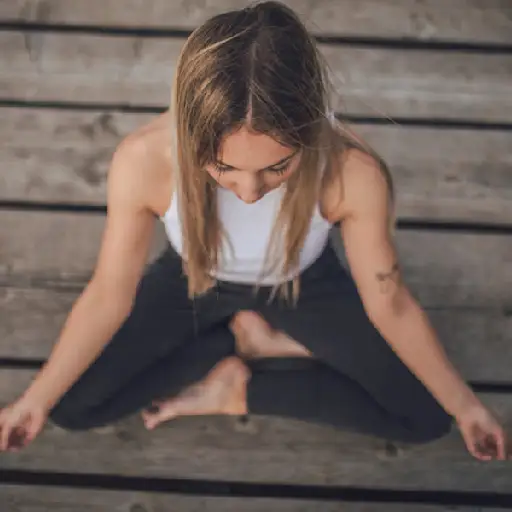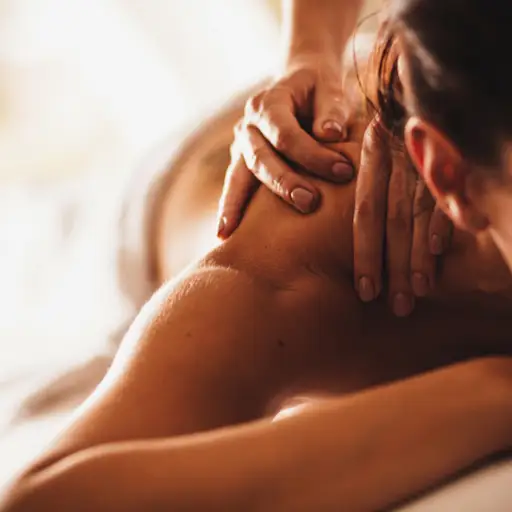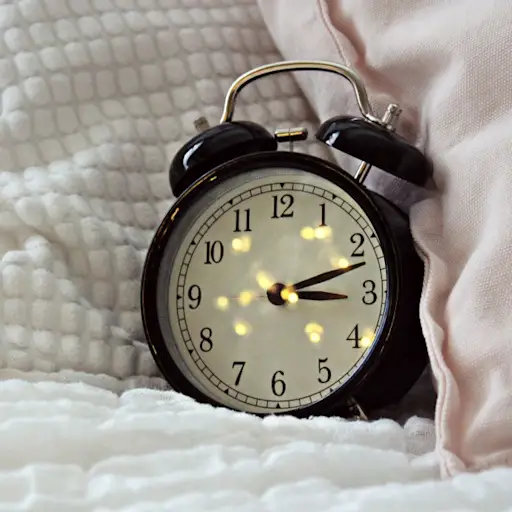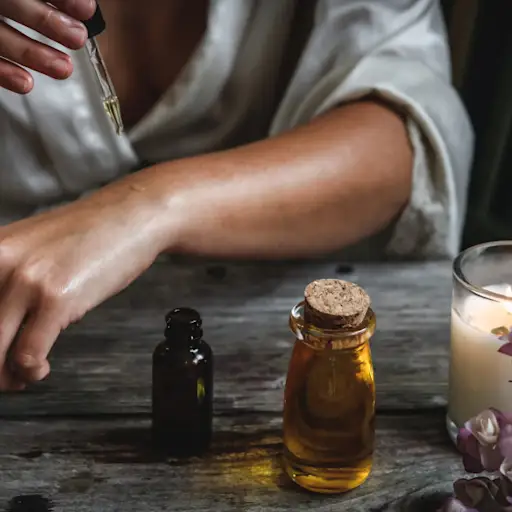10 Ways to Chillax for Fewer Hives
Chronic hives areno joke—just ask the three million-plus sufferers in the United States. While you may occasionally experience hives, the chronic version (aka urticaria) lasts more than six weeks, says Boston-based dermatologist Ranella Hirsch, M.D. They can be triggered by many things, including certain foods, medications, and (surprise, surprise) stress. According to the American Academy of Dermatology, about 50% of people who have chronic hives never find out what's causing them—and that, alone, can mess with your mind. Don’t let your anxiety make them worse! We’ve got easy ways to stay stress-free and keep breakouts at bay.
Get Moving!
We all know exercise is good for tightening and toning your bod; add chronic hives management to the list. Working out is a major stress reducer, allowing your body to produce endorphins, which are chemical modulators that can improve how you are feeling. Just be sure to wear loose-fitting clothing made with a sweat-wicking fabric (tight clothes can trigger a flare!) and try to limit getting overheated by exercising indoors, as heat can exacerbate hives as well, says Dr. Hirsch.
Don't Hit the Snooze Button.
In fact, wake up 20 minutes early and set your intentions for the day, suggests Whitney Bowe, M.D., a dermatologist in New York City and author ofDirty Looks. To do this, pinpoint the smaller, specific goals (rather than the big, scary ones) that you want to achieve, and use those as a roadmap for the day. Make your to-do list more realistic with things you can accomplish right now. This strategy is helpful if you find that you constantly get overwhelmed.

Step Away From the Smart Phones an Hour Before Bedtime.
In addition to affecting your sleep, the blue light that your phone emits can suppress the production of melatonin, thus making it harder to fall asleep. Using smart devices and spending time on social media—within an hour before bedtime—can be very distracting and not allow you to focus on the present. Taking time to simplify your environment, even for a short period, can be very restorative, says Dr. Bowe. Grab a book or magazine and leave your phone charging in another room to help keep your calm.

Turn on the Tunes.
According to Kayla Botelho, a social media micro influencer who has been living with chronic hives for four years, listening to soft, peaceful music while lying in bed helps her relax and thus, heal. "When I started taking care of my body, mind, and spirit, staying calm and managing stress became much easier. During stressful situations I no longer experience painful hives," said Botelho. She uses YouTube to search for healing or calming music, but there is no one "right" type of music that relaxes everyone. Choose the genre that has the most soothing effect on you.
Take Control of Your Diet.
After numerous attempts at medical interventions (including loads of antihistamines) proved unsuccessful, Botelho decided to try a more natural approach. She noticed fewer flares and more focus when she started a vegandiet,食用新鲜水果和蔬菜,避免certain foods including soy, corn, canola oil, gluten, MSG and citric acid. While this approach has worked for Botelho, "only a very small percentage of cases of [chronic] hives are caused by foods," notes Dr. Bowe. "In situations where foods are the trigger, avoiding the food is critical, but I wouldn't necessarily recommend a vegan diet."
Write Everything (and We Mean Everything!) Down.
Part of the stress of chronic hives is not being able to identify the cause. Dr. Hirsch recommends tracking your flare-ups and the circumstances that surround them, including foods eaten, the environment, any new clothing worn, and products used. By doing this, you may be able to pinpoint a common factor that you previously overlooked. For another journaling option, Dr. Bowe suggests keeping agratitude journaland writing daily (or as often as you can) entries. This will keep you focused on the positive, rather than the angst that chronic hives can cause.

Try Meditating.
Whether you are a traditional zen-seeker or a type-A multitasker, meditation can benefit one and all. It's a shortcut to a calm mind, and in turn, to calm skin, says Dr. Bowe, who tries to meditate once daily. She explains that meditating can trigger a relaxation response, where the body releases chemicals and brain signals that relieve tension in your muscles, slow down your organs, and increase blood flow to your brain. This response can reduce the pain, discomfort, and anxiety that often manifest themselves in skin conditions like hives. If meditation doesn't come naturally, try an app likeHeadspace对于一个little helpful nudge.

Pop a Pill—the Right Kind, of Course.
Botelho has found that consuming certain supplements helps keep her stress level down and minimize her hive outbreaks. She takes B12, zinc, and ester C daily and finds that, along with her clean healthy diet, they help boost her immune system and heal her body from the inside out. Dr. Bowe also recommends specific supplements, adaptogens in particular: Ashwangandha is an herb that contains chemical compounds called alkaloids, which can help ease stress and anxiety. And maca is rich in antioxidants and is touted to enhance your energy and mood. As always, touch base with your doc before trying a new supplement.
Add Some Essential Oils Into Your Nighttime Routine.
Dr. Bowe suggests diffusing theYoung Living Peace and Calming blendspecifically, as it helps reduce stress and promote productive sleep. Essential oils come in many variations—using ones in a diffuser can be a gentler approach than applying directly onto skin. Always check the label to see which kind of essential oil it is and how it is meant to be used. Dr. Bowe warns that certain essential oils can be irritating if used topically, so always do a spot test on a small area before applying all over skin.

Indulge in a Little Self-care (Even if It's not on Sunday).
A little pampering never hurt anyone and can help lower your stress levels and thus, your hives. While it may not be in your budget to hit the spa every other week, treat yourself to a restorative and relaxing treatment, like a massage for tension release, every few months. Or use a calming face mask (pre-made or DIY) at home as part of your relaxation routine once a week...or as often as you are able.
Dori Price is a New York-based freelance writer, editor and consultant in the beauty, style and wellness categories. She started my career in public relations but quickly made the move to editorial where she fell in love with testing products, interviewing experts and writing about all aspects of beauty and health. She worked at Family Circle magazine for 13 years, starting as an assistant and working her way up to Beauty & Fashion Director. She has also written for elle.com and Spotlyte. She is a skincare fanatic (hello, #selfcaresunday), nail art aficionado, fitness addict and health nut. She is also a new Mom to Benjamin, who lights up her world like nothing else.







